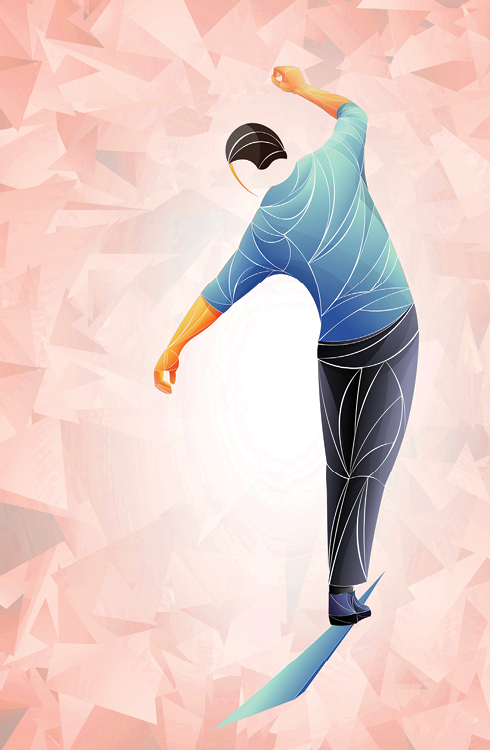The only constant in life is change, Heraclitus philosophized circa 500 B.C. You’d think that, in the past 2,500 years or so, we might have taken his words to heart and become just a smidge better at dealing with the unending uncertainty of life.
The truth is, change scares all of us. Our primitive brains want to keep us safe from harm, because who knows what fresh dangers any change—whether it’s a new predator in the habitat or new management at your job—might present. However change is also the only way that any species advances (adapt or die, after all), so our risk-averse brains are also curious and attuned to the opportunity of new challenges. If your wiring favors more protective instincts over curious impulses, that can be an advantage in many situations. But not all, because Heraclitus was right: Change and uncertainty are inevitable. The more flexible and adaptive you can be, the better.
Related: How I Found Excitement in Uncertainty
“The psychological construct of ambiguity tolerance has been linked to creativity,” says Victor Shamas, Ph.D., a psychologist in Tucson, Arizona, and author of Deep Creativity: Inside the Creative Mystery. “I work with a population that I have labeled as free spirits because they defy categorization in various areas: religion, political affiliation, career and gender. Beyond being tolerant of ambiguity, this population embraces it. The millennial generation is adopting a free-spirit attitude to a very large extent, which is fascinating.”
Get comfortable with uncertainty—or risk being replaced by a 23-year-old. Here’s how.

Try out new (but low-risk) experiences.
Thanks to its neuroplasticity, the human brain thrives when encountering the unknown. “The surest way to provoke the imagination and intellect is to seek out environments you have no experience with,” says Tamika Lewis, a psychotherapist in Sherman Oaks, California.
Start small: Try a new restaurant instead of your neighborhood standby, buy tickets to a play or concert you normally wouldn’t attend, or vacation in Asia instead of Europe. Modest changes can build your tolerance for uncertainty, so that when bigger things happen—a move, a job change, divorce—you’ll be better equipped to handle them. “You begin to move away from a fixed mindset to a growth mindset with greater capacity for solving problems and finding joy in your career and relationships,” Lewis says.
Related: How I’m Learning to Brave the Uncertain Future
Put words to your uncertain feelings.
“Research shows that naming negative feelings takes the sting out of them and makes us feel more in control,” says Tina Gilbertson, a psychotherapist in Denver and the author of Constructive Wallowing: How to Beat Bad Feelings by Letting Yourself Have Them. For example: “Things are up in the air right now, and it’s making me nervous” or “I’m scared of what might happen.” Once you’ve identified the specific emotions, you can begin to deal with them.
Accept that you can’t predict the future.
People who fear change often create lives of tight routines and consistency, falsely believing they can control the future by doing so. But change comes whether you ask for it, and in the meantime, you’ve created a restricted daily life that doesn’t allow for wonder and spontaneity. By recognizing that nobody can anticipate the future with 100 percent accuracy, you can open yourself to the magic of unpredictability.
Related: If You Change Yourself, You Can Change Your Life
This article originally appeared in the December 2017 issue of SUCCESS magazine.









